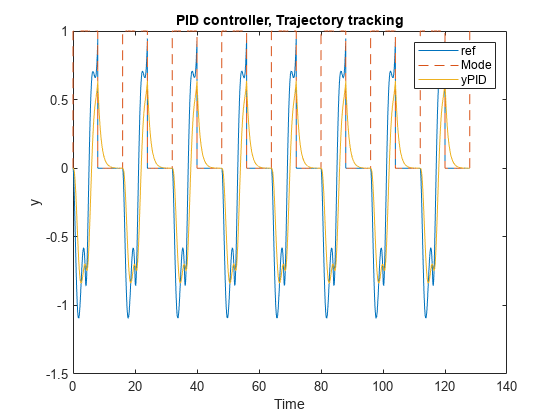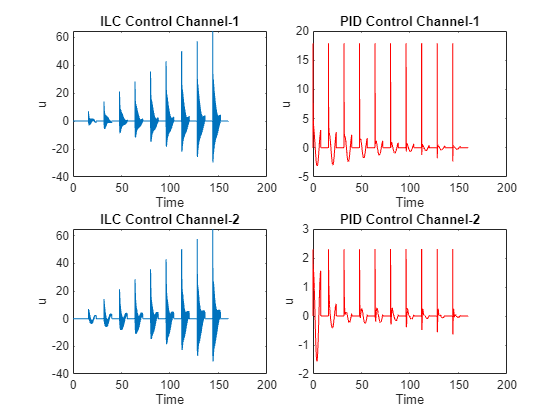Iterative Learning Control
Libraries:
Simulink Control Design /
Adaptive Control
Description
Iterative learning control (ILC) is an improvement in run-to-run control. This method uses frequent measurements in the form of the error trajectory from the previous batch run to update the control signal for the subsequent batch run. ILC improves the performance of systems that execute repeated operations, starting at the same initial operating condition. You can use ILC in many practical industrial systems in manufacturing, robotics, and chemical processing, where mass production on an assembly line requires repetition.
The Iterative Learning Control block provides the following configurations:
Model-free ILC — This method does not require prior knowledge of the system dynamics and uses proportional-derivative (PD) error feedback to update the control history. The model-free ILC update law is:
Here, γp is the proportional gain, γd is the derivative gain, and Q(q) is the first-order low-pass filter. Depending on the choice of PD gain, you can choose to implement P-type, D-type, or PD-type ILC. This method is applicable only to SISO systems.
Model-based ILC — This method is a more general form of ILC and is applicable to continuous-time and discrete-time LTI state-space systems of the following form:
Additionally, this method allows you to use either of the following two update methods:
Gradient-based ILC —
Inverse-model based ILC —
For more information about ILC, see Iterative Learning Control.
Examples
Ports
Input
Output
Parameters
Extended Capabilities
Version History
Introduced in R2024b


